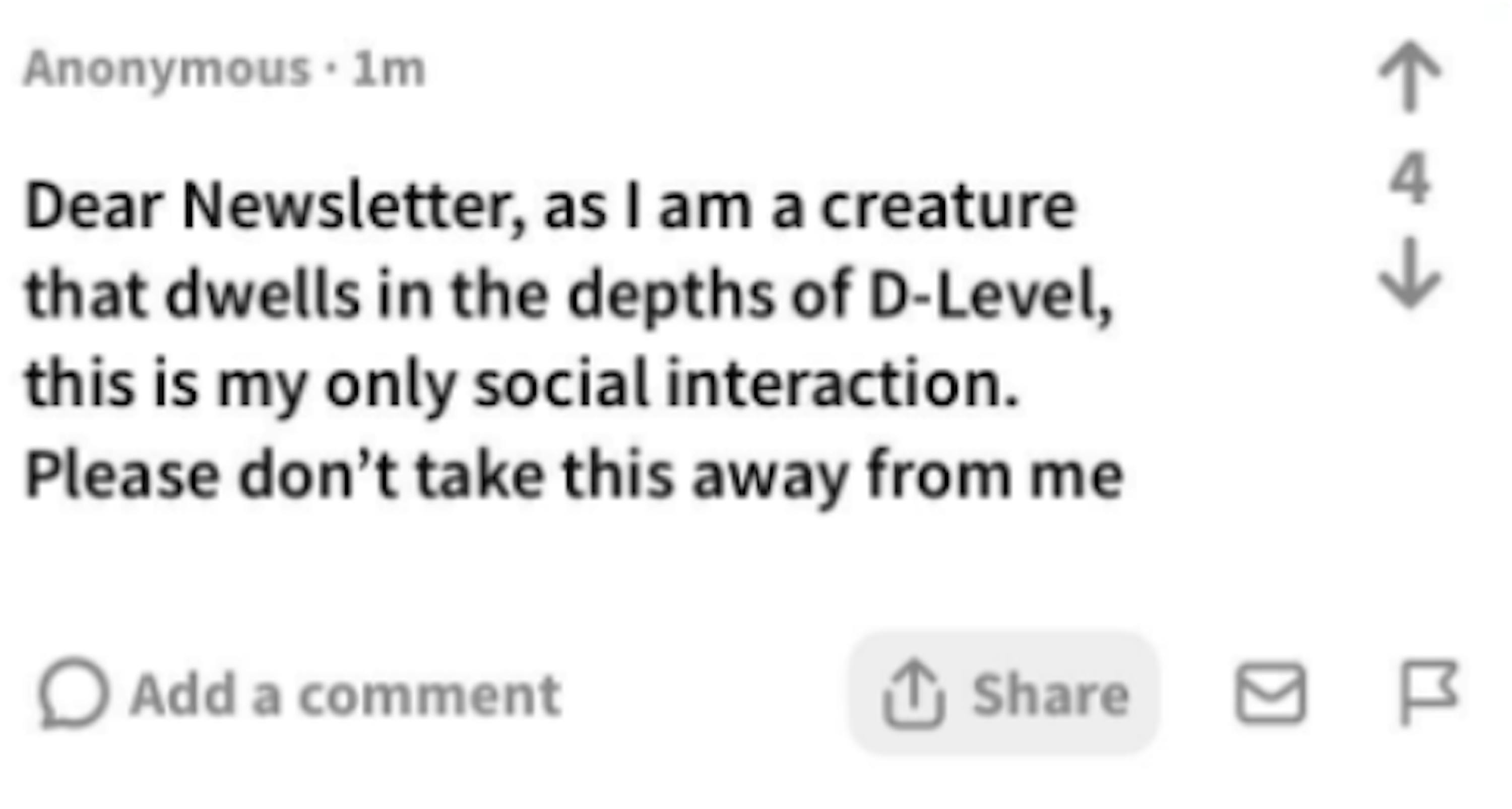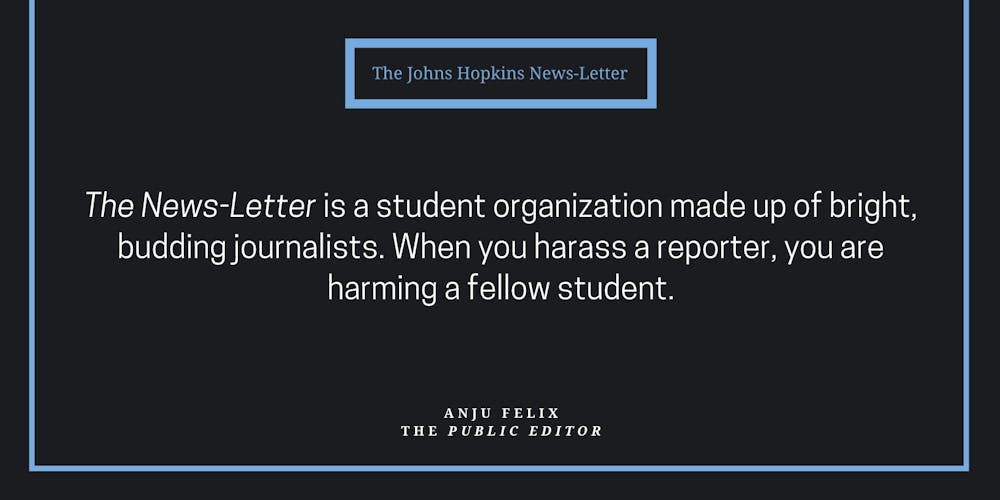
In April I assumed the role of Public Editor at The News-Letter. What is that? How does one edit the public? I had similar questions.
Essentially, I report on all things our University’s beloved paper touches. Whether it be reviewing how certain issues are covered, investigating the impact of pieces on readers, offering advice to editors or lending an ear to the public, I’ve got it covered. Through this role I hope to improve the interactions between The News-Letter and the greater Hopkins community.
As a student paper it is The News-Letter’s responsibility to communicate with the student body and ensure that it is properly responding and reaching out to the community. In recent years we’ve seen an evolution of what our community looks like and how we interact with one another primarily through the way students forge communities online.
Naturally, with the intent of listening to students and gathering their opinions, The News-Letter followed this exodus toward social media. Unfortunately, although well-intentioned, the paper's attempts to tap into social media haven't been the most successful with the harassment of student journalists being a large issue.
Earlier this semester, a rebrand of Yik Yak called Sidechat dropped on campus. It quickly became a platform to not only vent about campus tours and sexual frustrations, but also to praise the Crêpe Studio chef (a very valid observation). To access the Hopkins Sidechat portal, students must use their JHED ID to create an account, making it exclusive for Hopkins students.
Surprisingly I did see some funny and wholesome posts:

Many students expressed that Sidechat was a positive space, pleading with The News-Letter to keep the app (as if the paper has the power to take it down):

Under the guise of anonymity, students can post whatever they wish without real-life consequences. However, without any means for accountability, the atmosphere on the app can be incredibly toxic. Hell, even Sidechat users have said that the app is a breeding ground for bigotry and harassment.

Unfortunately, this is a lived experience. Earlier this month a staff writer at The News-Letter, who has been granted anonymity to protect her privacy, attempted to nail down interviews using Sidechat. Considering the popularity of the app and the range of diverse, colorful opinions, it seemed reasonable for student journalists to hop on the bandwagon, especially given the difficulty of finding sources and interviews in person.
Nonetheless, I was very disturbed to find that they were outright harassed and abused through direct messages. The writer stated that she would not be going back to Sidechat, nor would she be recommending other writers to use the app to solicit interviews. In an interview with the outgoing and incoming Editors-in-Chief, it was determined that the paper would likely not use Sidechat in the future given these experiences.
Online harassment isn’t new to the media industry and is always a potential threat. It is often forgotten that those involved in news are also people, and as journalists, it’s expected that they want to participate in spaces where readers are most actively sharing their thoughts and opinions.
This presents a significant barrier to fulfilling The News-Letter's goals of communicating and hearing from students. When hateful messages and threats are thrown at the staff, who are fellow students as well, it almost seems not worthwhile.
To be clear, the issue is not that jokes were made. The issue was that a student was targeted after presenting themselves as a writer. It is deeply saddening that because of their affiliation with the paper, a student had to endure this experience.
In an interview, outgoing Editor-in-Chief Laura Wadsten emphasized the humanity of student journalists.
“We are people, and [The News-Letter] is something we’re involved in and passionate about and want to contribute toward during our time at Hopkins,” she said.
The News-Letter is a student organization made up of bright, budding journalists. When you harass a reporter, you are harming a fellow student. When a student journalist approaches you in Brody Learning Commons or outside CharMar, you’re able to see them as human. Unfortunately, seeing a profile on an anonymous app does not positively contribute to humanizing our staff in the case of Sidechat.
As the incoming Public Editor, I would like to address this problem in the coming months. Through a series of interviews with our editors, I hope to spotlight the humanity of our staff and forge a better relationship with our readers.
I’ll start with myself. My name’s Anju Felix, and I’m a third-year undergraduate studying Neuroscience and Harp with a minor in Space Science and Engineering. I enjoy running and hiking trails, trying out new recipes and exploring the city with my dog and friends. I’m very excited to get started in this role and hope you’ll help me along the way.
Thank you for reading. The Public Editor would love to hear from readers like you about all things related to The News-Letter and its coverage and practices. If you would like to get in contact with the Public Editor about something raised in this column or anything else, email her at publiceditor@jhunewsletter.com.





